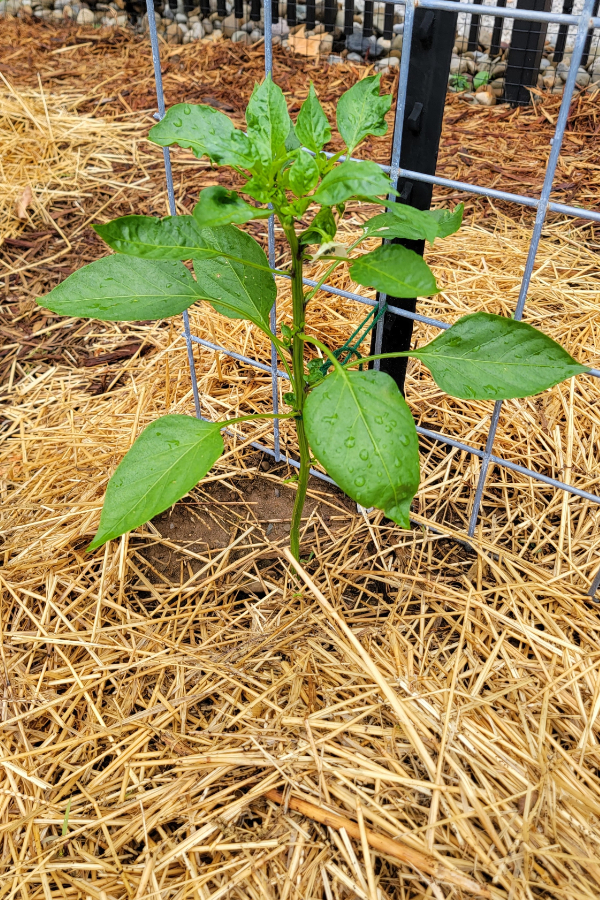Picking the Best Fertilizers for Peppers: Professional Recommendations
Picking the Best Fertilizers for Peppers: Professional Recommendations
Blog Article
Organic Vs. Synthetic Fertilizers: Which Is Best for Nurturing Healthy Pepper Plants?
In the world of supporting healthy pepper plants, the selection between synthetic and organic plant foods stands as a pivotal decision with far-reaching effects. While both choices aim to give important nutrients to support plant development, the subtleties of their influence on the soil, plant health and wellness, and the environment trigger a dispute that echoes throughout the gardening community. Understanding the unique advantages and potential risks of each fertilizer type is critical for pepper farmers looking for to enhance their yields while preserving a lasting and eco-conscious technique.
Advantages of Organic Plant Foods
Organic fertilizers use a lasting and environmentally-friendly technique to beneficial pepper plants, providing important nutrients without making use of synthetic chemicals. These all-natural plant foods are stemmed from natural resources such as garden compost, manure, bone meal, and seaweed, promoting soil wellness and biodiversity. Unlike synthetic fertilizers, organic alternatives release nutrients slowly, making sure a stable and well balanced supply for pepper plants to flourish.
One considerable advantage of natural fertilizers is their capacity to enhance dirt framework and water retention. By improving soil wellness, organic fertilizers promote advantageous microbial task, which assists in nutrient uptake by pepper plants. Additionally, natural plant foods decrease the threat of chemical run-off, safeguarding water resources from air pollution and securing the atmosphere.
In addition, natural fertilizers add to long-term dirt fertility by advertising the development of beneficial soil organisms. These microorganisms aid damage down raw material, launching nutrients in a form that is quickly available to pepper plants. best fertilizers for peppers. By promoting a healthy dirt ecosystem, natural plant foods sustain sustainable pepper cultivation practices that profit both plants and the environment
Drawbacks of Artificial Plant Foods
Synthetic plant foods, as opposed to their natural counterparts, posture different downsides when utilized to nurture pepper plants, influencing both plant wellness and environmental sustainability. One significant drawback of artificial fertilizers is their propensity to seep nutrients from the soil rapidly. This rapid leaching can bring about nutrient imbalances in the soil, triggering plants to endure from toxicities or shortages. In addition, synthetic plant foods can hurt helpful soil organisms, such as earthworms and helpful microorganisms, interfering with the dirt ecosystem's balance.
Furthermore, the overuse of artificial fertilizers can add to water contamination. Excess plant foods not absorbed by plants can clean away into water bodies, causing eutrophication, where algae blooms diminish oxygen levels in the water, harming marine life. Furthermore, synthetic fertilizers are typically stemmed from non-renewable sources, such as nonrenewable fuel sources, adding to carbon discharges and environmental degradation throughout their production.
Nutrient Absorption Comparison
When contrasting artificial and natural fertilizers in terms of nutrient absorption, natural fertilizers have the benefit of offering an extra balanced and slow-release resource of nutrients. Organic fertilizers consist of a range of macro and micronutrients that are not only helpful for the plants however also advertise healthy soil microbial task, which helps in nutrient uptake.
Furthermore, organic plant foods improve dirt structure and water retention capacity, enabling pepper plants to gain access to nutrients much more effectively. This enhanced soil high quality facilitates origin Read Full Article development, making it possible for better nutrient absorption. Artificial plant foods, although at first boosting plant development as a result of their high nutrient concentrations, might hinder lasting nutrient absorption by derogatory soil wellness over time.
Environmental Impact Considerations

On the various other hand, artificial plant foods, although commonly even more promptly readily available and focused to plants, can have detrimental results on the environment otherwise used effectively (best fertilizers for peppers). Their manufacturing requires high power inputs, leading to greenhouse gas exhausts and adding to environment change. The drainage of excess artificial plant foods can contaminate water sources, leading to eutrophication and damaging water ecosystems.
Best Fertilizer Practices for Peppers
To achieve this, it is important to follow best plant food practices tailored to the particular demands of pepper plants. One essential method is to do a soil examination prior to applying any type of fertilizers.
An additional vital technique is to fertilize pepper plants at the correct time. Normally, peppers take advantage of receiving plant food at planting and after that again when they begin to blossom. Over-fertilizing can cause nutrition imbalances and hurt the plants, so it is vital to follow recommended application prices.
Furthermore, choosing a balanced plant food with an NPK ratio that matches pepper plants' requirements is fundamental. Inevitably, combining organic and artificial fertilizers sensibly can help support healthy pepper plants while reducing environmental effect.
Conclusion

Organic fertilizers provide a lasting and environmentally-friendly technique to nourishing pepper plants, supplying necessary nutrients without the usage of artificial chemicals. Unlike synthetic fertilizers, natural options see here launch nutrients slowly, ensuring a constant and well balanced supply for pepper plants to grow.
Artificial fertilizers, in contrast to their organic counterparts, position various disadvantages when used to nourish pepper plants, affecting both plant wellness and environmental sustainability. When contrasting artificial and natural plant foods in terms of nutrient absorption, organic plant foods have the benefit of offering an extra balanced and slow-release resource of nutrients.Additionally, organic plant foods improve dirt framework and water retention capability, allowing pepper plants to accessibility nutrients much more effectively.
Report this page